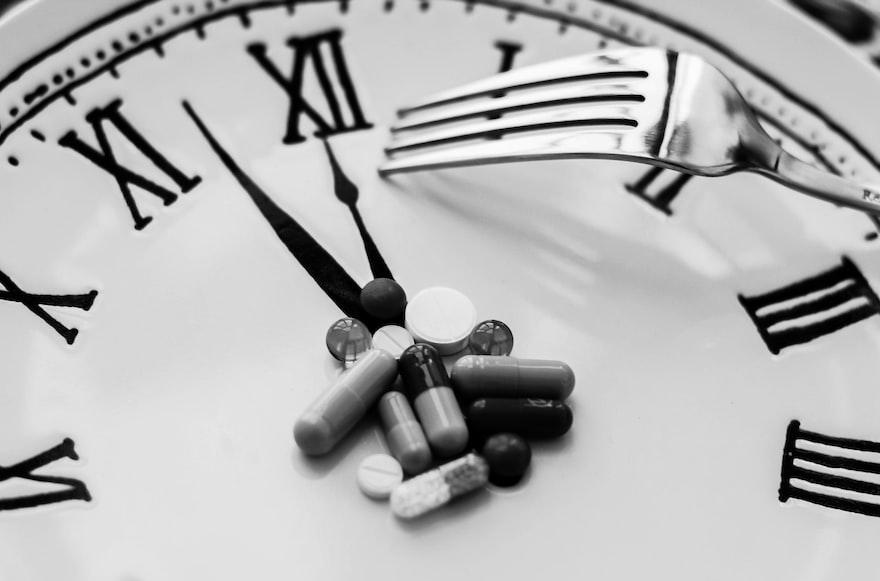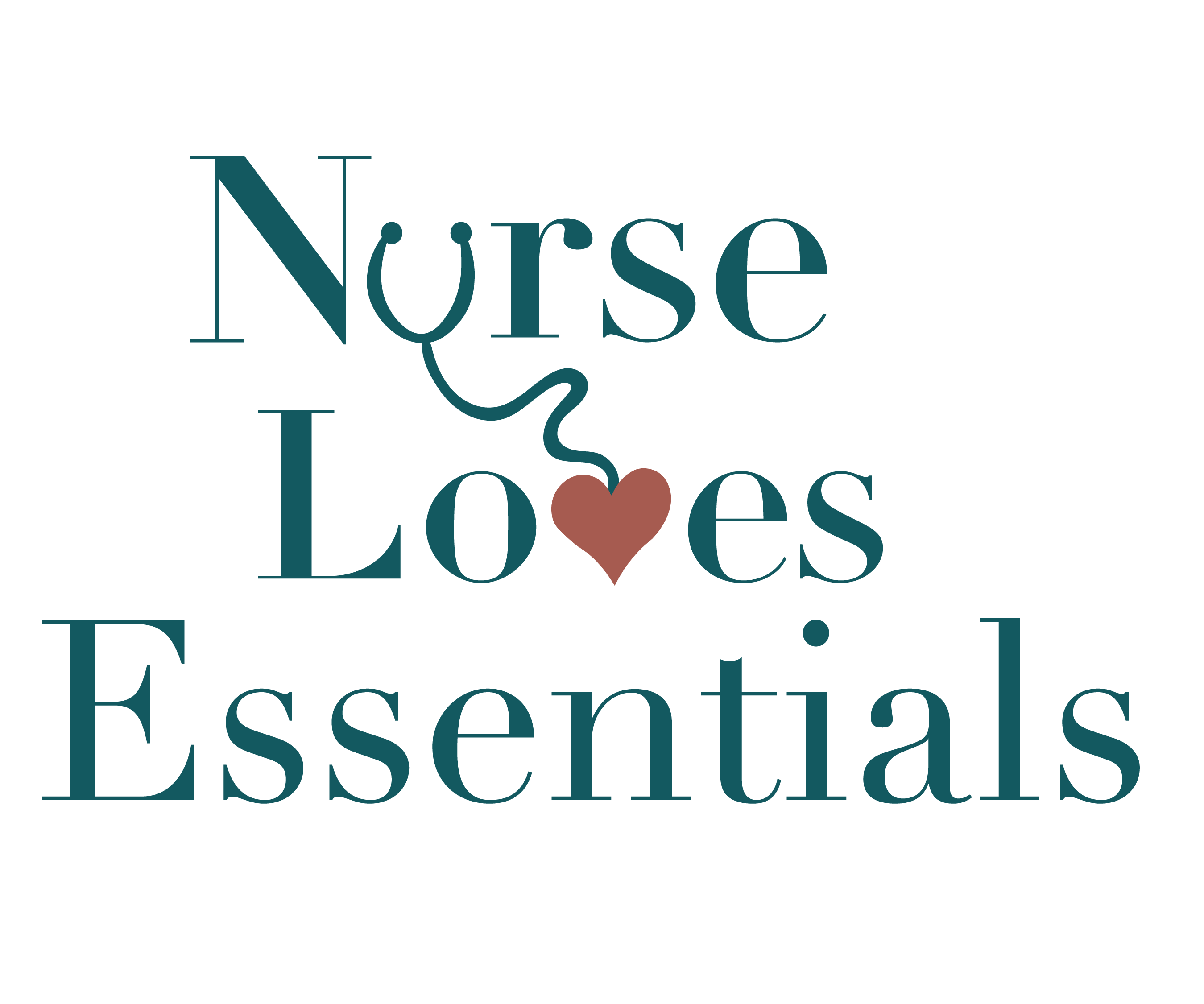Learning how to improve medication adherence is a crucial aspect of healthcare for the doctor and the patient.
Although its impact on your overall well-being cannot be over-emphasized, sadly, medication adherence is still an underestimated aspect of healthcare.
Whether managing a chronic illness, recovering from surgery, or dealing with a short-term ailment, adhering to your medication regimen is key to achieving the best possible health outcomes.
There are different ways to improve medication adherence, and I’ll show you how, as a patient, you can improve your medication adherence and ensure your drugs work the way they should.
What is medication adherence?
Medication adherence is the extent to which your behavior aligns with your healthcare provider’s medication or treatment plan.
It includes taking the correct dose of medication at the right time for the prescribed duration and following any specific instructions regarding food or other medications that may interact with the prescribed drugs.
Medication adherence is crucial for managing chronic diseases like diabetes, hypertension, and mental health disorders.
When you don’t adhere to your prescribed medications, it can lead to reduced treatment effectiveness and even drug resistance.

Medication adherence vs. compliance
“Medication adherence” and “medication compliance” are terms often used interchangeably, but they are slightly different; some healthcare professionals prefer one term over the other.
However, the fundamental concept they both refer to is the same—the extent to which a patient follows a prescribed medication regimen or treatment plan.
Here’s a brief overview of each of these terms:
a. Medication Adherence
Medication adherence is a patient-centered practice that focuses on the patient’s active involvement in their healthcare.
It stands for and encourages the idea that patients make informed decisions about their treatment and are willing participants by collaborating with their healthcare provider.
Adherence recognizes that patients may have valid reasons for not strictly following a prescribed regimen, including their lifestyle and values, and it seeks to understand and address those reasons.
b. Medication Compliance
Medication compliance is a more traditional term that implies that the patient has only a passive role in their treatment, with the expectation that they should conform (without question) to the doctor’s orders.
Compliance tends to focus more on whether or not the patient is following the prescribed regimen without necessarily considering the patient’s perspective, reasons, or preferences.
In recent years, there has been a shift in healthcare toward using the term “medication adherence” because it places greater emphasis on the partnership between healthcare providers and patients.
It acknowledges that patients also have a say in their treatment decisions and that healthcare should be a collaborative effort between them and the healthcare providers.
Ultimately, the fundamental goal is to ensure you take your medications correctly and consistently to achieve the best possible health outcomes while recognizing and addressing any barriers or concerns.
Why you need to improve medication adherence
From the insight into medication adherence, the need to improve is not far-fetched.
Here are some reasons you need to improve medication adherence both personally (as a patient) and professionally (as a healthcare provider):
1. Effective treatment
Medications work best when present in the body in the right concentration. Skipping doses or not taking medications due to non-adherence can result in the drugs not being present in the right concentration in the body, thereby reducing their effectiveness.
In the same vein, overusing drugs like antibiotics and analgesics can lead to drug resistance, where the drugs will no longer be effective in the body because the body has managed to build a high tolerance for them because of overuse.
It is crucial to improve medication adherence to prevent the development of drug-resistant microbial strains and a high drug tolerance in the body, which ultimately leads to an effective treatment regimen.
2. Prevents disease relapse
Many chronic illnesses require daily medication to keep the condition under control. Regularly taking your prescribed medications helps maintain stability and alleviate symptoms.
For specific conditions that can have periods of remission and relapse, like autoimmune diseases or asthma, adherence to your medications can prevent sudden flare-ups and worsening symptoms.
It can also prevent complications from uncontrolled disease progression or the need for more aggressive treatment options.
3. Fewer hospital visits
When you don’t adhere to your prescribed medications, your conditions may worsen or become uncontrolled, leading to complications that require a visit to the emergency room or even hospitalization.
For example, a diabetic patient who doesn’t take insulin as prescribed may experience hyperglycemic attacks requiring emergency action and hospital care.
Consistent medication adherence is essential to survival in chronic illnesses like heart disease, asthma, or COPD. If you do not adhere to your medications, you are more likely to experience acute episodes that result in hospital admissions.
By improving medication adherence, you are more likely to maintain stable health and reduce the need for emergency care or hospital visits.

4. Low risk of death
Many medications for chronic diseases are prescribed to manage life-threatening conditions. Adherence to these medications is critical because they are often life-saving or life-prolonging.
For instance, medications like chemotherapy drugs or antiretrovirals for HIV can significantly extend and improve patients’ lives when taken consistently.
If left uncontrolled due to medication non-adherence, it can lead to severe complications and increase the risk of premature death.
Adhering to medications for conditions like cancer, HIV/AIDS, hypertension, or diabetes can help control these diseases and reduce the risk of life-threatening complications.
5. Reduced resistance to drugs
Consistent adherence is crucial in cases where antibiotics are prescribed to treat bacterial infections. Incomplete or interrupted antibiotic courses can lead to the survival of more resistant bacteria, increasing the risk of antibiotic resistance.
Resistant strains of bacteria are harder to treat and may require more potent antibiotics, which can have more side effects and cause increased body-drug tolerance.
In conditions like HIV or hepatitis, antiretroviral medications are used to suppress the virus. Poor adherence to these medications can lead to the development of drug-resistant strains of the virus, making treatment less effective and potentially limiting future treatment options.
By improving medication adherence, you reduce the likelihood of developing drug resistance, which not only preserves the effectiveness of current treatments but also ensures that a broader range of treatment options remains available.
6. Saves cost
Medication non-adherence can result in uncontrolled or worsened health conditions, leading to complications that require additional and, usually, urgent medical interventions, such as surgeries or hospitalizations. These complications can be expensive to treat and will automatically increase healthcare costs.
Adhering to your medications will lead to better disease management, reducing hospitalizations or emergency room visits.
Hospitalizations are typically one of the most costly components of healthcare, and avoiding them can lead to substantial cost savings.
RELATED POSTS:
Common reasons for non-adherence
Here are some common reasons people do not adhere to their medications:
- Forgetfulness
Some people may simply forget to take their medications, especially if they have multiple prescriptions with different dosing schedules.
- Cost of medications
High medication costs can be a significant barrier to adherence, so even when one understands the importance, one cannot afford it.
- Lack of symptoms
When you do not experience immediate or noticeable relief from the symptoms of your condition, you may question the need for the medication or feel that it’s unnecessary to continue treatment.
Also, you might discontinue treatment when you get relief from your symptoms, even though you are not done with the prescribed treatment regimen.
- Mistrust of the healthcare system
Some people may distrust healthcare providers, leading them to question the necessity of prescribed medications or believe that healthcare providers have ulterior motives.
- Fear of side effects
Concerns about side effects or adverse reactions can stop patients from adhering to medications, especially if they have experienced severe side effects.
- Complex dosages
Medication prescriptions with complicated dosing schedules or numerous pills can be overwhelming and lead to non-adherence, especially if the patient finds it difficult to track when and how to take each medication.
- Misunderstanding instructions
Patients may not fully understand how to take their medications, leading to confusion and non-adherence. It can include misunderstandings about timing, dosage, or dietary restrictions.
- Inconvenience
Medications that disrupt daily routines or require special handling, such as refrigeration or specific timing, can be inconvenient. Patients may skip doses due to these inconveniences.
- Religious beliefs
Religious beliefs and practices can sometimes conflict with certain medical treatments or medications. Patients may refuse or modify treatments based on their religious beliefs.
How to improve medication adherence
Here are some practical ways you can improve medication adherence:
1. Establishing effective patient-doctor communication
Effective communication between healthcare providers and patients is fundamental to improving medication adherence. It helps build trust, ensures that patients understand the importance of their medications, and addresses any concerns or barriers they may have.
Here’s how to establish effective patient-doctor communication:
- Open and honest dialogue
- Clear and simple language
- Active listening
- Ask for feedback
- Tailored information
- Use visual aids
- Follow-up

Shared decision-making empowers you to participate in your healthcare decisions actively. When patients are involved in the treatment planning, they are more likely to take ownership of their health and adhere to prescribed medications.
As a healthcare provider, you need to provide patients with information about their condition, available treatment options, and the benefits and risks of each option. Encourage them to ask questions and seek clarification.
If available, you can discuss different treatment approaches and involve the patient in selecting the most suitable option. This collaborative approach ensures the treatment plan is acceptable to the patient, and they are more likely to adhere to a medication plan they were a part of.
3. A clear understanding of the medication regimen
This strategy is more on the part of the healthcare provider.
If possible, simplify the medication regimen by reducing the number of medications, daily doses, or complex dosing schedules. Fewer medications and more straightforward routines are more manageable for patients.
You can also simplify the medication regimen using visual aids like pill organizers or color coding. This method can be beneficial for patients taking multiple medications.
Providing patients with a comprehensive list of their medications, including names, dosages, and dosing schedules, will encourage them to adhere to them.
4. Education and awareness
Get educated about your medical condition, the purpose of each medication, and how it fits into your overall treatment plan. Know and understand the benefits of adherence and the risks of non-adherence.
You can also discuss potential side effects of the medications with your doctor, their likelihood, and steps to manage them. Ask questions and voice your concerns about your medications. Address any misconceptions or fears immediately or during any of your visits.
For healthcare providers, schedule periodic medication reviews with your patients to assess their understanding, adherence, and evolving needs or concerns. This provides an opportunity to make adjustments to the treatment plan if necessary.
Offer written materials, brochures, or pamphlets that summarize vital information about the medications and their condition and connect patients with support groups or organizations related to their condition. These groups can provide valuable information, resources, and emotional support, enhancing awareness and adherence.
5. Organizing medications with pill organizers or apps
Suppose you notice that your reason(s) for non-adherence are forgetfulness or a complex medication regimen. In that case, consider using pill organizers, which are physical containers with compartments for each day of the week or multiple times a day.
To make this effective, fill the pill organizers at the beginning of each week and ensure all medications for each dose are separated and labeled. Choose easily open and close organizers and portable ones to carry around.
You can also use medication reminder apps readily available for smartphones and tablets.
Some medication reminder apps can sync with pharmacy services to automatically refill prescriptions and provide medication histories. You can take advantage of these features for added convenience.

6. Creating a medication schedule and routine
Create a personalized medication schedule that aligns with your daily routines. Consider factors like meal times and sleep patterns. Identify the best times to take your medications to minimize disruptions and maximize adherence.
You can also create a medication chart showing the timing and dosage of each medication. You can refer to this chart to check off doses as you take them.
Integrate your medication regimen into daily routines, such as brushing your teeth or having meals. This method helps to establish consistency and improve medication adherence.
7. Medication reconciliation with your doctor
Your doctor might schedule periodic medication reviews with you, especially if you have multiple or complex regimens. These reviews help ensure your medications are still appropriate and effective for your condition.
During these reviews, go over your current medication list with your doctor. Confirm the names, dosages, and dosing schedules of each medication. Address any questions or concerns about your medications.
Inform your doctor about medication changes, such as newly prescribed drugs, over-the-counter medications, or supplements. Your doctor can assess potential interactions and adjust your treatment plan as needed.
If you have any doubts or misunderstandings about how to take your medications, use these reviews to seek clarification from your doctor. Ensure you fully understand the dosing instructions, potential side effects, and dietary restrictions.
8. Having an accountability partner
Having an accountability partner is another way to improve medication adherence and even have a solid support system for the needed motivation.
Choose a family member, friend, or caregiver who can serve as your medication adherence accountability partner. This person should be reliable and willing to support your efforts.
Communicate your medication schedule, dosages, and any specific instructions with your accountability partner. Make sure they understand the importance of adherence.
Ask your partner to remind you to take your medications at the prescribed times and offer encouragement and support.
Schedule regular check-ins with your accountability partner to discuss your adherence progress, any challenges you’ve encountered, and potential solutions.
Lastly, give your partner your healthcare provider’s contact information in case they need to reach out for an emergency, guidance, or assistance.
CONCLUSION
Learning to improve medication adherence is not just about taking pills; it’s about taking charge of your health and future. It’s a commitment to yourself, your loved ones, and your well-being.
By understanding the importance of adherence and implementing the tips in this post, you’re on a path to better health outcomes, reduced healthcare costs, and a higher quality of life.
Always remember that it’s okay to seek support and ask questions if you’re unsure about your medications. Your healthcare provider is there to guide you.
So, make informed decisions, simplify medication management, and leverage available tools and technology. Most importantly, celebrate your success because every pill taken as prescribed is a step closer to a healthier you.
How often do you adhere to your medication dosage and prescriptions?
READ ALSO: 10 Top Supplements for Arthritis Patients to Ease Symptoms




0 Comments